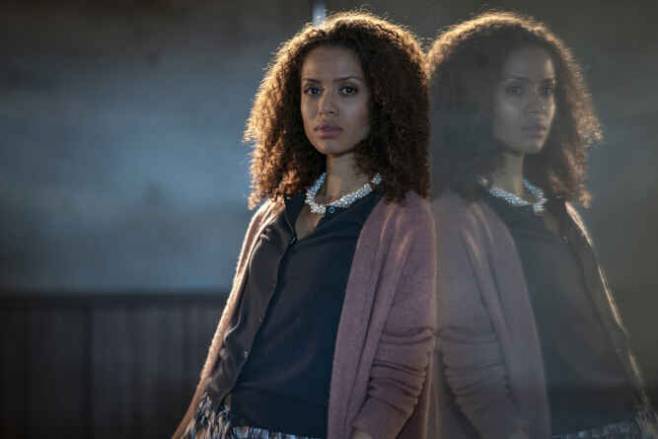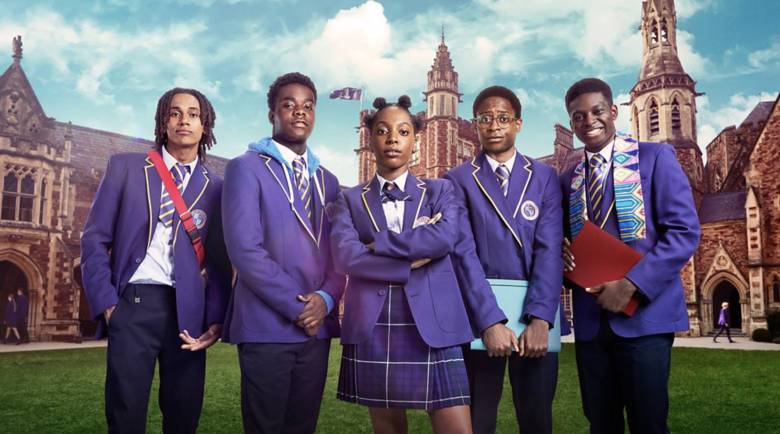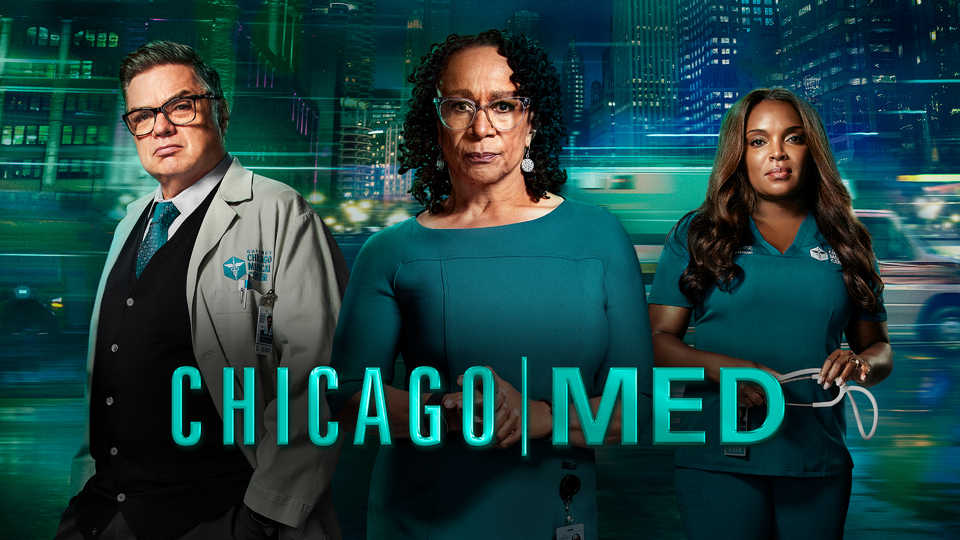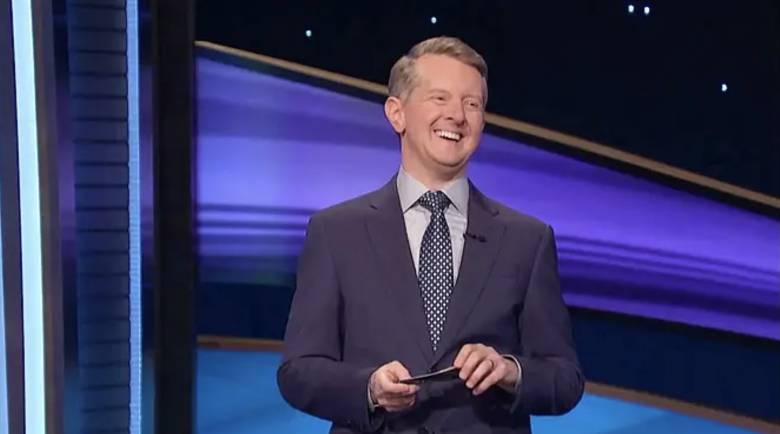This is a project where you’re not only acting, but also have a hand behind the scenes as a producer – so what drew you to this project?
I first read the script and I was aware that it was a best-selling novel by JP Delaney. I thought it was intriguing reading it at the time, in the height of the pandemic with lockdowns and everybody being in their homes. For me, it was quite interesting to think about home and the house and how everybody’s relationship to their environments has changed in the last year or so.
So, that was an interesting concept for a script like this. I’ve also never done a psychological thriller before, and I loved the fact that it was a twisty, compelling tale with an original point of view. You also have Jane and Emma-often you have one great female lead and in this, there were two. So, the feminist in me was like “yes, this is amazing!” Because both characters are complex and layered with such nuance to their back stories. Also, knowing it would be on BBC and HBO Max was cool because I’ve been doing a lot of American work for the past few years, so to be able to do something that shot in the UK was a bonus. So overall, just the plot, the genre itself and a really, meaty, complex role.
In terms of producing, this is my first time being an Associate Producer. It was exciting to be invited to be a part of the conversation in terms of pre-production, casting and script notes. So, it was a really stimulating way to get involved – having acted for quite a few years. The actors are usually the last piece of the puzzle, I was able to come in alongside Eleanor Moran and Rory Aitken at 42 and work with JP Delaney, who has adapted his own novel into the script.
I learned a lot in terms of story and being a part of the casting process. I knew David already and it was nice working with him again. Being a part of the process of finding Emma and the wonderful Jessica Plummer. So, it’s been a journey and it’s been great after having the pandemic and a year of isolation – to be able to flex my muscles in different facets of the industry and feel like I’m learning a bit more about how the machine works from different perspectives.
Was there anything about Jane’s journey that you found interesting to explore?
Yes, there’s a lot to chew on with Jane, which is part of what drew me to the role. When we first meet her, she’s experienced a trauma. How that’s affecting her in terms of the grief and psychology of that, was fascinating to me. There’s so much for Jane that she’s carrying, that was interesting to explore.
As an actor, you are an amateur psychologist in a way because you are really exploring how people’s minds work and human behaviour. And I think, especially in this production, there was a lot in terms of Jane’s journey. For me, that’s always the really fulfilling stuff because it’s not just emotional, it’s psychological and there’s an intellectual element as well in terms of the research. But I think it’s about absorbing all that stuff so that it’s in your body on the day and you feel confident to be representing women who have had this experience. And of course, it’s not a documentary – it’s a drama but you want to feel authentic, especially with issues that are so sensitive which we explore in the show, you want to feel like you’ve respected people by doing the research.
Can you talk about how living in One Folgate Street affects Jane with regards to the processing of that grief?
As I said, Jane moves into One Folgate Street at a very difficult time in her life when she’s experienced loss. She’s incredibly raw on the inside. I think you’d look at her on the outside and she looks like this very together woman. She works in financial PR, she has beautiful clothes and externally she looks like she’s a very successful, together woman. We get glimpses of her subconscious in her dreams and nightmares, and you realise how much she’s haunted by the loss.
And so One Folgate Street really explores the opportunity for Jane to have a fresh start, but how all those things are still tormenting her in the house. There is something calming and cleansing in that for her. And I think ultimately – and I’ve talked a lot to Lisa (Brühlmann- director) about this – it’s that journey from control to healing. Through this grief process that she has, coming to Folgate Street almost feels like a decompression chamber or chrysalis for her to transform into a healed person after this traumatic experience.
The storyline centres around two women taking control over their own lives in different ways. How important was it for you for this story to be told from a female lens?
It’s been wonderful working with our director Lisa and the incredible producers on the team as well. For me, Lisa always had a very strong vision from our first conversation in terms of what drew her to the story and a beautiful visual imagery in mind for capturing it. I think for her, it was very much exploring themes of control and how all the different characters express their control. Be it in perfectionism, exercise, the clean lines of the house, or even with Jane where she’s trying to control her grief.
She doesn’t want to feel the way she does. She doesn’t want to experience the pain. She pushes it down a lot of the time. She’s always trying to be okay and that’s another element of control. That was something that Lisa deeply understood and it’s been wonderful working with her. She’s just incredibly accomplished and collaborative and has been open to our ideas as actors. She has a background in acting as well so I think she really understands the psychology of what these women are going through.
The house plays such an integral role in the series. It has even been described as another character. How did the look and style of the house affect the decisions you made playing Jane?
It’s been really interesting being in the space. You can read about the house, and look at pictures, but actually being in the space does something to you. Initially I found the brutalist elements of the space very cold. But what’s been wonderful in this production and the genius of Jon Henson’s production design is that the space has moods, enhanced by the cinematography of Eben Bolter. We really feel the emotionality of the house and ‘Housekeeper’, which is somewhat a version of Alexa – makes the house identity and personality take on elements of their own.
That’s one of the fun things about a psychological thriller – it’s how much the house is changing the characters. One of my favourite scenes which feels like a tipping point to that is a moment where Jane’s music starts playing in the house and it sort of intoxicates her and she ends up moving and dancing to the music in a way that makes you wonder. I find that fascinating, but also, the house is moulding her in some way. I think the whole experiment of the Monkford partnership, which is Edward/David Oyelowo’s character’s architectural firm, is about how a space can change you and make you feel.
It’s funny because after weeks of filming here, we were doing a photoshoot in this space the other day and I felt quite panicked because they had moved all the furniture and taken the sofa out. I think, like Jane, you get very possessive of a space and the rules of a space, and I realised how emotionally connected I had become to this space, that I originally thought was so cold, when I see other people using it in a different way. It’s obviously affected me! It’s a fun concept to explore.
Can you talk little bit about the costumes you wear in the show and the process of finding the right style for Jane?
It’s been a real journey working to find Jane’s look and working with the amazing, and very collaborative Charlie Jones, who is our costume designer. Also Tanya Lodge, the hair and makeup designer and Carrie-Anne London, who is doing my hair and makeup specifically. It’s a holistic journey in not just the clothes, but also trying to find a synergy between Emma and Jane so that it feels like there’s a likeness there, even though they’re not the same person. They’ve been smart about bringing out those elements; if the hair’s down, if it’s back, the silhouette of the clothes and the echoes there. Jane’s clothes are very lux. I jokingly say I’m only here for the cashmere! Jane has about four fabulous cashmere coats and I think the great thing about Charlie is that she also has a background in styling, and we’ve been working with some great designers. Because of the aesthetic of the show, the design of the house has also overlapped into the design of the clothes in a way.
There is a very clean, tailored, beautiful look to Jane’s wardrobe, which is much more luxurious and higher end than my own clothes. So, it’s been fun, and it really changes how you move and feel. She comes from financial PR, a corporate world – albeit it’s a boutique firm but it’s a world of money. So, there’s a real opulence to her clothes, which has been fun to work with. Specifically, we have items of clothing that are almost characters themselves – the black dress which both Emma and Jane wear, which is a gift from Edward. I can’t wait to see the Emma side of the costumes and how that will echo Jane.
Now, finally, house rules require residents to move in with only essential items. So what are the three essential items that you can’t live without and why?
Doing this job and playing Jane has made me realise that I’m not much of a ‘stuff’ person myself. I’m certainly not a minimalist and this isn’t necessarily my taste, but I think as an actor, I’ve had quite a nomadic life in the last several years. So, I’m used to living out of two suitcases and not accumulating too much because of moving around for work. So, I’m pretty simple in my needs. I really couldn’t live without a kettle because I drink too much tea. So, definitely a great kettle.
I’ve got two exercise things that have become my greatest friends in the pandemic. They are my yoga mat that has long been my essential that I bring everywhere. I bring it to set with me and it’s always in my trailer. And that’s always great to have with me as a grounding place to stretch and move. Or I’d tie that with my trampoline. I have a miniature trampoline which I got into as a joyful way of exercising through lockdown and it’s something that I brought with me from America. I’m probably going to take one to my next job as it’s just a fun thing to have. And obviously a bath.
Kettle, trampoline and yoga mat, and bath as a sneaky fourth. You get to stay hydrated; you get to move and then you get to relax! I think that’s a good balance.














